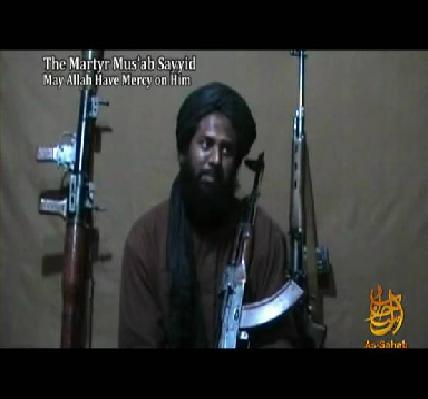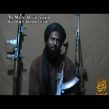
Jihad and Islamism in the Maldive Islands
By:

Maldivian President Mohammed Nasheed admitted in October, 2009 that hundreds of Maldivian Muslims had been recruited by Pakistan-based terrorist groups and are presently fighting against government forces in Pakistan. [1] The revelation by Nasheed was substantiated by video footage circulated by al-Qaeda’s media wing in November 2009, which not only proved Maldivians’ participation in the global jihad movement, but also demonstrated the impact of radical Islam on the psyche of Maldivian youth. Ali Jaleel (a.k.a. Musab Sayyid), a Maldivian national who had been fighting alongside pro-Taliban forces in Pakistan, was featured in that video. [2] Ali Jaleel died during the suicide attack on the Inter-Services Intelligence (ISI) headquarters in Lahore on May 27, 2009 (Haeveeru Online, November 8, 2009).
Soon after, another video aimed at jihadi recruitment featured a previously unknown al-Qaeda cell operating in the Maldives. The short video flashed the message, "Your brothers in the Maldives are calling you." This brief internet footage was perhaps a declaration of sorts for the establishment of the first al-Qaeda cell in the Maldives. The image in the video shows three men sitting together on a beach while another man is standing in the foreground near a coconut tree (Adnkronos International, November 20, 2009). Later it was confirmed that the video teaser was posted by the media wing of the lesser-known Ansar al-Mujahideen. [3]
In an earlier incident, Maldivian national Ibrahim Fauzee was arrested in Karachi, Pakistan, in May 2002 while living in a suspected al-Qaeda safe house. Fauzee, an Islamic cleric, was held in extrajudicial detention in the Guantanamo Bay detention camp until his release and repatriation to the Maldives in March 2005 (al-Jazeera, October 7, 2009). These and other incidents have sparked concerns about the spread of radical Islam in the Indian Ocean archipelago.
A Paradise for Radicalism
The Maldives, a Sunni Muslim majority island nation, is sometimes described as a paradise for Islamic radicalism. The country witnessed a terrorist strike for the first time in September, 2007, when a bomb explosion in the capital Male wounded 12 foreigners, including British, Japanese and Chinese tourists (The Guardian, September 30, 2007). The blast in Sultan Park was targeted at the thriving tourism industry, which is by and large the economic lifeline of the Maldives. Despite the economic benefits, many radical Islamic groups active in the Maldives have denounced tourism’s influence on the local Islamic culture.
Following the Sultan Park bombing, security agencies rounded up over 50 suspects, including a couple of Bangladeshi nationals. Many more fled to Pakistan and Sri Lanka. Two suspects wanted in the investigation, Abdul Latheef Ibrahim and Ali Shameem, had left the Maldives prior to the blast incident with the help of a sympathetic immigration official. Both suspects are believed to have traveled to Karachi via Sri Lanka.
Three terrorists in their early 20s, Mohamed Sobah, Moosa Inaz, and Ahmed Naseer, were sentenced to 15 years in jail in connection with the Sultan Park bombing after confessing to their role in the attack during the trial. [4] They have reportedly admitted their goal was to "target, attack and injure non-Muslims to fulfill jihad."
The bombing prompted the authorities to crack down on extremist elements holed up in the illegal Dhar-ul-Khair mosque on Himendu (or Himandhoo) Island in October 2007. The situation spiraled into a violent confrontation between the members of Dhar-ul-Khair mosque and security forces when the latter attempted to carry out a search and sweep operation. The Maldivian police and the Maldives National Defense Force (MNDF) successfully put down the radical rising and ended the hostage crisis in Dhar-ul-Khair in a scenario similar to the Lal Masjid standoff in Islamabad in July, 2007. Sixteen people were sentenced for the violent confrontation with police at Dhar-ul-Khair (Miadhu online, October 8, 2007; The Guardian, October 9, 2007).
The Pakistan Factor
There is growing evidence of Maldivian youths frequenting Pakistan for reasons unknown or suspicious in nature, though enrollment in various madrassas (Islamic seminaries) was usually cited as the prime reason for their travel. Intelligence agencies of the United States and India have noted this development with concern and believe that the growing religious extremism in Maldives is a Pakistani import.
In the early weeks of February 2010, nine alleged Maldivian terrorists who were arrested in Pakistan’s troubled South Waziristan tribal agency in March, 2009 were brought back to the Maldives. According to Maldivian police, these nine people have ties to the 2007 Sultan Park bombing and may have left the country for Pakistan via Sri Lanka for further training and indoctrination. The nine suspects, who were repatriated in two phases, included Yoosuf Izaadhy, Ahmed Ashraf, Abdullah Sameer, Ali Faiz, Moosa Yoosuf, Yoosuf Mohammed, Ali Shafeeq, Mohamed Zuhrey, and Ahmed Ali. (Haveruu Online, April 2, 2009; Minivan News, April 1, 2009; Miadhu Daily, February 8).
The infiltration of Pakistani militants in the Malidives goes back to the post-tsunami period. The Pakistan-based Idara Khidmat-e-Khalq (IKK), a charitable front of the Jamaat-ud-Dawa (JuD), reached the Maldives in the wake of the December, 2004 Indian Ocean tsunami under the guise of providing humanitarian services. The JuD is the political face of the Kashmir-based Lashkar-e-Taiba (LeT) terrorist group. According to intelligence sources, the IKK spearheaded LeT’s activities in the Maldives, which focused on drawing youths into its fold (rediff.com, September 10, 2009). The IKK reported spending $282,000 in the Maldives, although the Maldivian government says the organization was never registered as a charitable group providing post-Tsunami relief (The Hindu, November 14, 2007).
Worried India
Neighboring India fears that the Maldives’ territory will be used as a breeding ground for Islamist terrorists or as a launching pad for attacks against India. The Maldives are undoubtedly a fertile ground for jihadist recruitment, due to an already radicalized youth (the effect of schools and madrassas being taken over by Mullahs), the influence of the Islamist organization Jamiat Ahl e-Hadith and the persuasive power of Islamist propaganda urging Maldivians to fight to relieve the plight of fellow Muslims abroad. As such, the Maldives offer excellent prospects for global jihadi groups like the LeT and al-Qaeda. Even Maldivian President Mohammed Naseed believes that there is a Maldivian connection to LeT’s November 2008 attack on Mumbai (Rediff.com, October 26, 2009). With increasing concern for the growing radicalization of Maldivian society, and as reports surfaced about the LeT’s foray into the archipelago, the government announced in January that it would not allow its territory to be used for terrorist activities against its neighbors, especially India (Press Trust of India, February 4).
The LeT has been trying to set up bases in uninhabited islands in the Indian Ocean since early 2005 under the guise of carrying out charitable operations. In mid-2009, India’s Intelligence Bureau (IB) issued a warning that the next big attack on Indian soil would be launched from the Maldives and that this threat necessitated the establishment of a robust coastal security apparatus (Rediff.com, July 7, 2009). The IB has also cautioned that terrorist groups like LeT were trying to infiltrate India’s porous coastline (Economic Times, June 30, 2009). Though this alert seemed routine, the actual threat emanating from places like Maldives is not totally unfounded. Again this year, the IB issued intelligence reports about LeT’s aggressive strategy, which has seen the movement deploy nearly 1,000 operatives in the Maldives (Rediff.com, February 4; Minivan News, February 4).
In April 2005, Kerala police arrested Maldivian national Asif Ibrahim, who had reportedly frequented the Indian state to procure arms and ammunition for the LeT’s Maldives operations. Ibrahim confessed to having planned to blow up a government-run mosque and to assassinate then-Maldivian President Maumoon Abdul Gayoom. Sabahuddin Ahmed, one the prime suspects in the Mumbai carnage, has disclosed details of the LeT’s Maldives chapter and the organization’s attempt to recruit youths there (Rediff.com, December 19, 2008).
Salafi Jihad and Talibanization
On an official level, the Maldivian government has become involved in promoting a deal between the Taliban and the Afghan government. A secret meeting in January between Afghan government officials and a delegation that included representatives of Gulbuddin Hekmatyar’s Hizb-i-Islami, along with seven men “with close links to the Taliban and respected by Mullah Omar” raised fears among some Maldivians over a perceived trend towards Taliban-style governance in the Maldives (Minivan News, January 28). [5]
The newly democratized Maldives has been coming under the grip of a Salafi-Jihadi ideology which is increasingly gaining currency among Maldivians, especially the youth. Radical political parties such as the Adhalaat (Justice) Party (part of the government coalition) are clamoring for Shari’a to be implemented. Adhalaat, which is sympathetic to the Taliban, also control’s the nation’s Ministry of Islamic Affairs. Another growing Salafi-Wahhabist organization is the Jamiat ul-Salaf, which is vehemently opposed to secularism within Muslim-dominated societies. Jamiat ul-Salaf supports Islamizing education in the country and promotes intolerance towards other religions, especially Christianity.
The Ministry of Islamic Affairs of the Maldives claims to have developed de-radicalization methods and has been taking measures to curb the activities of the various transnational Islamic organizations that have arrived in the Maldives in recent years (Miadhu Daily, April 12, 2009). However, the radical branch of Islam and its call for jihad against non-believers has many more supporters in the Maldives now than in the past and threatens to continue inducing Muslim youths in that country to join global jihadi groups.
Notes
1. For a complete transcript of President Mohamed Nasheed’s interview, See “Radicals in Pak recruiting our youth: Maldives”, CNN-IBN, New Delhi, Oct 25, 2009.
2. See video of Ali Jaleel at https://www.liveleak.com/view?i=e1a_1257529338 .
3. See the video at https://threatswatch.org/rapidrecon/2007/11/ansar-almujahideen-targets-the
4. Maldives Police Service, https://www.police.gov.mv, December 13, 2007.
5. Al-Jazeera TV, January 28 – https://english.aljazeera.net/news/asia/2010/01/20101271653316762.html




